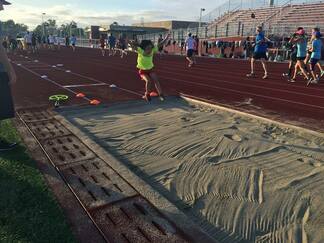 Monkey see, monkey do.’ We are all familiar with that phrase, referring to someone or something that copies another person. However, did you know it also might accurately represent a great strategy for parents to help their children develop good eating habits and activity levels? Research suggests that children whose parents play an active role in their health education while they grow up are less likely to become overweight, obese, and develop unhealthy habits (4). Parents, you play an exciting role in your child’s life. Kids are like sponges and they absorb all sorts of information around them. If you go out for a run, bike ride, or pickup soccer game they will see you and 9 times out of 10 will probably want to join you! As a parent, you are creating and influencing the habits that your children will rely on for the rest of their lives. There are many ways to go about combating obesity but one of the most important weapons in our arsenal is right at home. At 2nd Recess, we encourage parents to join their kids in active play because we know of the power they hold to make a difference in the health of their child. If you are a parent and want to know how to inspire your family to be healthy and active get started by visiting our website, www.2ndrecess.org, or the Let’sMove.gov site. Try incorporating one of the tips below to jump start your family health routine! 1. Be active (1)! 2. Encourage playing outside (2). 3. Have dinner as a family (3). 4. Learn about healthy habits as a family. References 1. M. Y. Hood and others, “Parental Eating Attitudes and the Development of Obesity in Children: The Framingham Children’s Study,” International Journal of Obesity 24, no. 10 (2000): 1319. 2. T. Baranowski and others, “Observations on Physical Activity in Physical Locations: Age, Gender, Ethnicity, and Month Effects,” Research Quarterly for Exercise and Sport 64, no. 2 (1993): 127–33; J. F. Sallis and others, “Correlates of Physical Activity at Home in Mexican-American and Anglo-American Preschool Children,” Health Psychology 12, no. 5 (1993): 390–98. 3. M. W. Gillman and others, “Family Dinner and Diet Quality among Older Children and Adolescents,” Archives of Family Medicine 9, no. 3 (2000): 235–40; D. Neumark-Sztainer and others, “Family Meal Pat- terns: Associations with Sociodemographic Characteristics and Improved Dietary Intake among Adoles- cents,” Journal of the American Dietetic Association 103, no. 3 (2003): 317–22. 4. Ana C. Lindsay, Katarina M. Sussner, Juhee Kim, and Steven Gortmaker, “The Role of Parenting in Preventing Childhood Obesity,” The Future of Children 16, 1 (2006): 169-86.
0 Comments
Leave a Reply. |
2nd recessInformation about health, fitness, and nutrition. Archives
April 2021
Subjects
All
|

 RSS Feed
RSS Feed